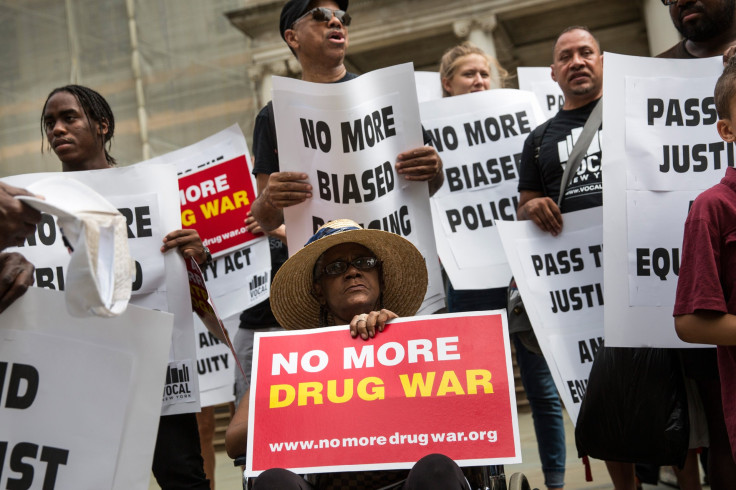Marijuana Legalization 2015: Oregon Hopes Legal Weed Will End Race-Based Arrests, But Advocates Wary

Advocates of marijuana legalization in Oregon are hoping its new recreational marijuana law could correct decades of racial bias in the state, where black Oregonians have been twice as likely as whites to get arrested for marijuana-related offenses. But experts are hesitant to say that legalization will lead to justice just yet.
“Change is going to be slow, and it’s going to require intentional work and diligence,” David Rogers, director of the American Civil Liberties Union of Oregon, told GoLocalPDX in Portland. Despite such reservations, Rogers said he remained “optimistic” about legalization. “In our minds, when you look at the racial disparity both nationally and in Oregon, it raises a real concern, and … an attempt to legalize and tax marijuana could be a step in the right direction,” said Rogers.
On average, black Americans are 3.7 times more likely to be arrested for marijuana offenses than whites, despite both races using marijuana at similar rates. Research has shown that blacks were more likely than whites to be arrested on marijuana offenses in all states except Hawaii. The arrest disparity was most striking in Iowa, where blacks were 8.3 times more likely to be arrested on marijuana-related charges than whites, according to a comprehensive 2013 report from the ACLU. The difference was second-highest in the District of Columbia, where blacks were eight times as likely to be arrested as whites.
The majority of marijuana offenses – about 94 percent – are treated as misdemeanors that result in fines or probation, not felony convictions, according to the New York Times. However, such misdemeanors persist on permanent records. Such arrests accumulate, especially among poorer minority groups, resulting in so-called criminal histories that consist of marijuana misdemeanors.
In Colorado, which legalized recreational marijuana in 2012, arrests for possessing, growing and distributing marijuana dropped significantly after legalization, but the racial divide has persisted. While overall marijuana arrests plummeted from 30,0000 in 2010 to 2,000 in 2014, black Coloradans were still 2.4 times more likely to be arrested for marijuana drug offenses than whites, according to research published in April.
Advocates of marijuana legalization have long criticized the U.S. government’s decades-old “war on drugs,” which they argue is a failed policy that has cost taxpayers billions in law enforcement expenses. “Despite being a priority for police departments nationwide, the War on Marijuana has failed to reduce marijuana use and availability and diverted resources that could be better invested in our communities,” said the ACLU.
© Copyright IBTimes 2024. All rights reserved.






















